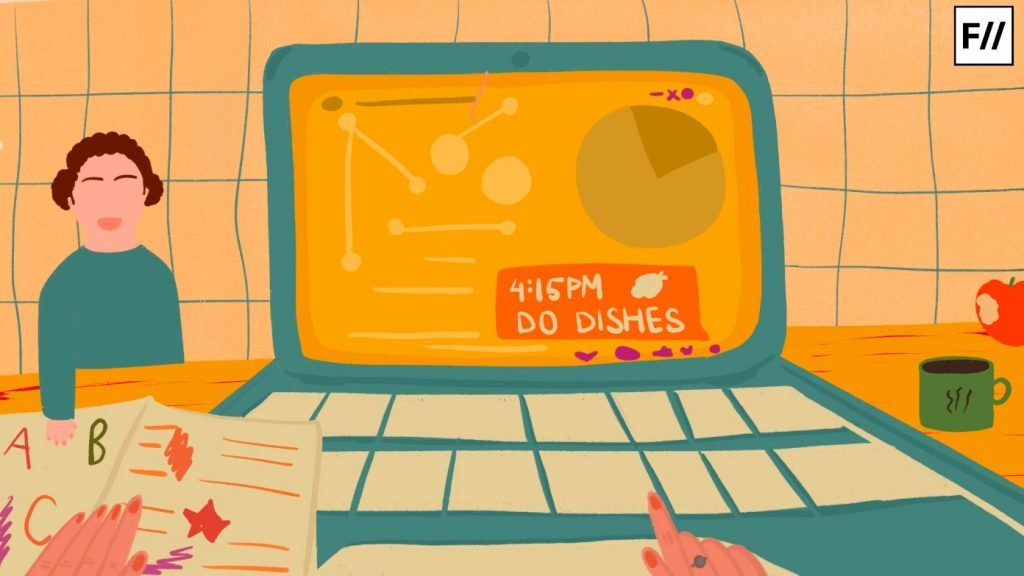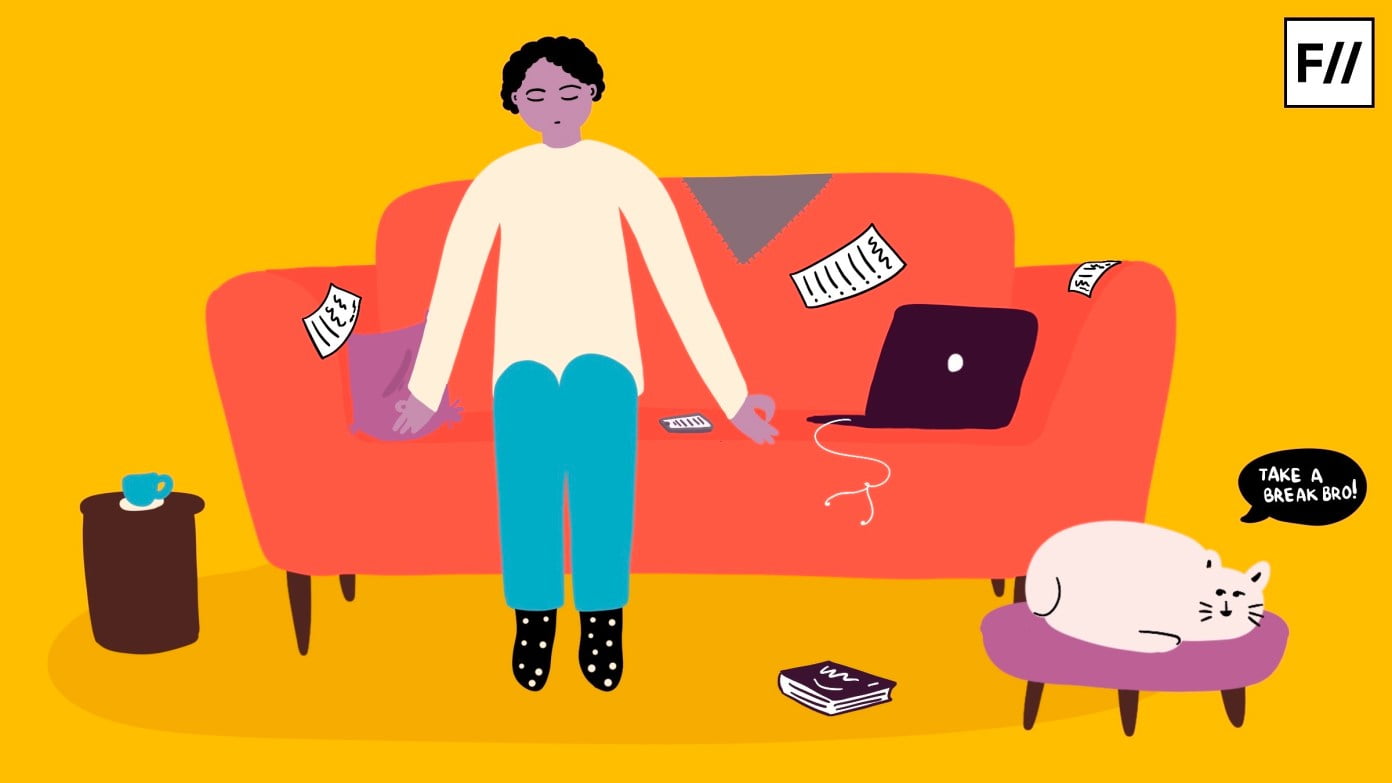The pandemic introduced work from home for even the social sector for which the usual requirement was to be on field. With work going online for such institutions the power equation got really skewed for the employees in many aspects which was brushed under the carpet.
Firstly, employees whose pay was not cut like elsewhere were constantly made to feel excessively grateful despite the fact that some of these institutions had complete funding for the year and didn’t have to depend on profit from the ongoing work to pay employees. Work from home not only changed the dynamics of employer-employee relationships but also left employees at the mercy of their employers.
While the employers went on an ego trip boasting of zero pay cut, on the other hand, house owners increased the rent seeing the fact that people are now at home and are using the electricity all day. Less attention was paid to the difficulties of employees who could not go home but had to work remotely from PGs or rented houses.
Once my admin retorted back to me when I raised the issue of salary getting credited quite late, “You are now working from home. You don’t have to even pay the rent. So I don’t understand why there is so much urgency.”
This was a win-win situation for organisations as their head subtly hinted that one is putting one’s job security at risk while asking for a paid leave/holiday to visit family after months for some solace, while at the same time, telling there is no pressure, “We are not stopping you. But If I were in your place I wouldn’t be going home. I mean you are putting yourself at risk, your family at risk.”

Others working locally who had their entire family with them pitched in, “I think this is in your best interests to not go home this entire year. Go next year.” People shamelessly made these statements as they wanted work to go on nonstop and also save themselves from the risk of getting infected. Well they only thought about these things and not about the mental condition of people who had to stay locked in a room in PG all day.
Pandemic was the perfect trope using which employers showed employees plenty of reasons not to go home and this was all masked as a service they needed to do to help the virus not spread more.
Some of the basic rights were assumed to be suspended and were deemed not to be asked for during this period. With things operating from home it was fine crediting salary late to the account of workers as people who went back to their home didn’t have to pay rent. Once my admin retorted back to me when I raised the issue of salary getting credited quite late, “You are now working from home. You don’t have to even pay the rent. So I don’t understand why there is so much urgency.” I was asked to forget about my right to have a salary on time for the work I have did on time.
In the present modus operandi, asking for a medical leave or casual leave often puts the workers in an unwanted spotlight where conversation in the office group would often point to the fact that, “You have to work from home only so why do you need a full day off.”
Asking for medical leave was considered out of question and at times was met with the remark, ”Ghar se hi to karna hai kaam, dekh lo, nahi liye bina bhi chal jae to achha hai.” This again led to a mental struggle for many who constantly felt that these issues might end up spoiling one’s reputation in an already mechanised work sector which doesn’t take human emotions into account.
The toll work was taking on employees’ mental health was never even considered. Every injustice is fine under the umbrella of work from home. You can be asked to stay for meetings after official hours and get called in the morning before the official hours, you will be asked to complete work late at night after all you are working from home, you don’t have to travel, so be grateful and work your ass off.
Asking for medical leave was considered out of question and at times was met with the remark, ”Ghar se hi to karna hai kaam, dekh lo, nahi liye bina bhi chal jae to achha hai.” This again led to a mental struggle for many who constantly felt that these issues might end up spoiling one’s reputation in an already mechanised work sector which doesn’t take human emotions into account.
The employers well aware of the fact that sitting in front of laptops for longer hours lead to many health complications. They should either have initiated conversations around respite from screen time or provide the workers with supplementary benefits like glare free glasses both for screen and eyes, instead of sending warning messages if people are not being seen online on office groups or upon not receiving prompt replies (which funnily again can be a technical issues in many cases.)
Also read: How Does Masculinity Affect Work-From-Home In A Pandemic World?
Unlike IT companies in which work from home provision was always there, here in the social sector the employees had to grapple with proving themselves as efficient as they were on field and at times feeling impotent. And again the conversation would come back to square one, “You should be grateful .All field work is suspended. We did not stop anyone’s money.” Well then why don’t they also acknowledge that using the work from home trope they made employees work doubly, the work did not stop in either way so my question is why should the pay issue be used by them?
Though certain organisations did face money paucity and had to let off giving raises, some instead got opportunistic using the pandemic as an excuse to not increase the money.
Back in office, often the yardstick to measure how efficient employees are at work was proportional to the ones staying late, interestingly the same model was replicated in online registers in the past few months with similar comparisons being made when admin often during routine conversations ends up saying, “X or Z is so hardworking. Daily they are logging out at 7 or 7:30, sometimes they are working till 8.”
And a voice at the back of my mind constantly reminded me that somehow in working from home the employers distrust is so evident that one is not up to the mark and this guilt often led to overcompensation in the sense one would readily take work not mentioned in ToR, be available for calls all time after all you need to show them that yes you are working! And you would dare not lose any opportunity in doing so, for that one approval from the higher authority that emphasises that you are working as efficiently as you did on office. The office heads also capitalised on this fear and made people put extra labor which was never paid back in cash or kind.
Also read: Home As Workplace—A Longstanding Problem For Homeworkers
Well what’s ironic are the claims that the social sector makes on placing human emotions and values first. The pandemic widened the gap one step more between the preaching & practices of this sector.
Zeenat is a community development professional.Its the on ground work that gets her going. In her free time she tries to draw parallel between her field experiences and her home experiences and look at both from the lens of University teaching’s. She loves to analyse the many societal standards for women and girls and is often found struggling with the same. You can find her on LinkedIn and Facebook.
Featured Image Source: Feminism In India




